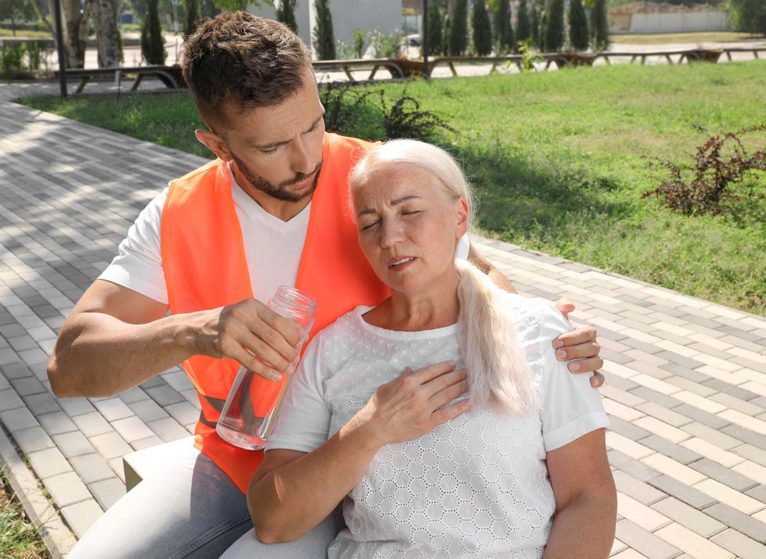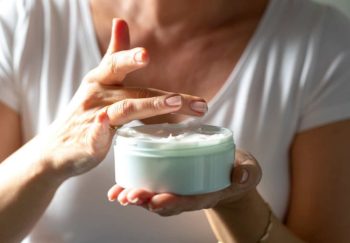As summer temperatures push the mercury higher, it’s important to take precautions to avoid heat-related illness. But did you know your medication can make you more sensitive to heat and put you at greater risk for a heat-related issue?
“If your body is physically not able to do that because of a medication, you’re not going to have a way to have that sweat come onto your skin and evaporate, which is one of the main mechanisms you have to cool down,” UVA Health Director of Ambulatory Pharmacy Justin Vesser says.
What Happens When You’re More Sensitive to Heat
Heat intolerance happens when your body has trouble regulating its temperature. It can cause:
Worried About Heat-Related Illness?
If you find you’re more sensitive to heat, you may want to talk with a primary care provider.
- Fatigue
- Headache
- Dizziness
- Fainting
- Nausea and vomiting
- Flushed skin
- Muscle cramps
- Rash
- Weakness
Heat exhaustion happens when your body temperature rises above 104 degrees. It happens before a life-threatening condition called heatstroke, when your body temperature goes over 104 degrees. Heatstroke damages your brain and organs.
Medicines that Make You Sensitive to Heat
These medications can make you heat intolerant:
- Antidepressants
- Antihistamines
- Antipsychotics
- Blood pressure medicines
- Decongestants
- Heart medicines
- Overactive bladder medicines
- Stimulant medicines for ADHD
Other factors that can put you at greater risk include:
- Being older than 65
- Dehydration
- Overweight or underweight
- Drinking alcohol
- Heart, lung, kidney, and thyroid diseases
- Low-salt diets
- Electrolyte imbalance
Preventing and Treating Heat-Related Symptoms
If you take any of the medicines listed above, it’s important to know how to prevent and treat heat-related symptoms. Remember, the medicines can combine with other factors to make you even more sensitive to heat.
To avoid illness when temperatures soar:
- Don’t spend long periods outside
- Don’t exert yourself
- Drink lots of fluids
- Wear loose-fitting, lightweight clothes
If you begin feeling sensitive to heat:
- Get to a cool place as soon as possible
- Take sips of cool water
- Remove extra clothes
- Put cool compresses on your body
Get medical help if you have these more serious signs of heat-related illness:
- Rapid heartbeat
- Decreased sweating
- Altered mental state
“The bottom line is at the end of the day, just protecting yourself from the sun and protecting yourself from the heat as best you can is the best strategy for being able to avoid these medication complications,” Vesser says.


